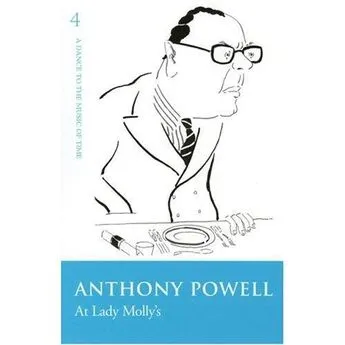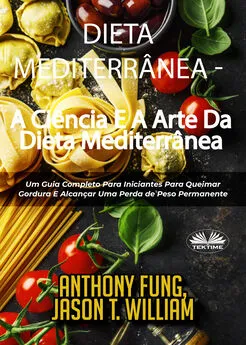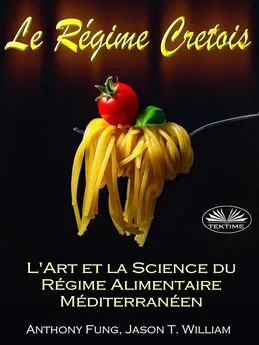Anthony Trollope - Autobiography of Anthony Trollope
- Название:Autobiography of Anthony Trollope
- Автор:
- Жанр:
- Издательство:неизвестно
- Год:неизвестен
- ISBN:нет данных
- Рейтинг:
- Избранное:Добавить в избранное
-
Отзывы:
-
Ваша оценка:
Anthony Trollope - Autobiography of Anthony Trollope краткое содержание
EBook of Autobiography of Anthony Trollope by Anthony Trollope (www.anthonytrollope.com)
Autobiography of Anthony Trollope - читать онлайн бесплатно ознакомительный отрывок
Интервал:
Закладка:
how it had come to pass that the English novels of the present
day have become what they are, to point out the effects which they
have produced, and to inquire whether their great popularity has on
the whole done good or evil to the people who read them. I still
think that the book is one well worthy to be written.
I intended to write that book to vindicate my own profession as
a novelist, and also to vindicate that public taste in literature
which has created and nourished the profession which I follow.
And I was stirred up to make such an attempt by a conviction that
there still exists among us Englishmen a prejudice in respect
to novels which might, perhaps, be lessened by such a work. This
prejudice is not against the reading of novels, as is proved by their
general acceptance among us. But it exists strongly in reference
to the appreciation in which they are professed to be held; and it
robs them of much of that high character which they may claim to
have earned by their grace, their honesty, and good teaching.
No man can work long at any trade without being brought to consider
much, whether that which he is daily doing tends to evil or to
good. I have written many novels, and have known many writers of
novels, and I can assert that such thoughts have been strong with
them and with myself. But in acknowledging that these writers have
received from the public a full measure of credit for such genius,
ingenuity, or perseverance as each may have displayed, I feel that
there is still wanting to them a just appreciation of the excellence
of their calling, and a general understanding of the high nature
of the work which they perform.
By the common consent of all mankind who have read, poetry takes
the highest place in literature. That nobility of expression, and
all but divine grace of words, which she is bound to attain before
she can make her footing good, is not compatible with prose. Indeed
it is that which turns prose into poetry. When that has been in
truth achieved, the reader knows that the writer has soared above
the earth, and can teach his lessons somewhat as a god might teach.
He who sits down to write his tale in prose makes no such attempt,
nor does he dream that the poet's honour is within his reach;--but
his teaching is of the same nature, and his lessons all tend to
the same end. By either, false sentiments may be fostered; false
notions of humanity may be engendered; false honour, false love,
false worship may be created; by either, vice instead of virtue
may be taught. But by each, equally, may true honour, true love;
true worship, and true humanity be inculcated; and that will be
the greatest teacher who will spread such truth the widest. But
at present, much as novels, as novels, are bought and read, there
exists still an idea, a feeling which is very prevalent, that novels
at their best are but innocent. Young men and women,--and old men
and women too,--read more of them than of poetry, because such reading
is easier than the reading of poetry; but they read them,--as men
eat pastry after dinner,--not without some inward conviction that
the taste is vain if not vicious. I take upon myself to say that
it is neither vicious nor vain.
But all writers of fiction who have desired to think well of their
own work, will probably have had doubts on their minds before they
have arrived at this conclusion. Thinking much of my own daily
labour and of its nature, I felt myself at first to be much afflicted
and then to be deeply grieved by the opinion expressed by wise and
thinking men as to the work done by novelists. But when, by degrees,
I dared to examine and sift the sayings of such men, I found them
to be sometimes silly and often arrogant. I began to inquire what
had been the nature of English novels since they first became common
in our own language, and to be desirous of ascertaining whether they
had done harm or good. I could well remember that, in my own young
days, they had not taken that undisputed possession of drawing-rooms
which they now hold. Fifty years ago, when George IV. was king, they
were not indeed treated as Lydia had been forced to treat them in
the preceding reign, when, on the approach of elders, Peregrine
Pickle was hidden beneath the bolster, and Lord Ainsworth put away
under the sofa. But the families in which an unrestricted permission
was given for the reading of novels were very few, and from many
they were altogether banished. The high poetic genius and correct
morality of Walter Scott had not altogether succeeded in making men
and women understand that lessons which were good in poetry could
not be bad in prose. I remember that in those days an embargo was
laid upon novel-reading as a pursuit, which was to the novelist
a much heavier tax than that want of full appreciation of which I
now complain.
There is, we all know, no such embargo now. May we not say that
people of an age to read have got too much power into their own
hands to endure any very complete embargo? Novels are read right
and left, above stairs and below, in town houses and in country
parsonages, by young countesses and by farmers' daughters, by old
lawyers and by young students. It has not only come to pass that
a special provision of them has to be made for the godly, but that
the provision so made must now include books which a few years since
the godly would have thought to be profane. It was this necessity
which, a few years since, induced the editor of Good Words to apply
to me for a novel,--which, indeed, when supplied was rejected, but
which now, probably, owing to further change in the same direction,
would have been accepted.
If such be the case--if the extension of novel-reading be so wide
as I have described it--then very much good or harm must be done
by novels. The amusement of the time can hardly be the only result
of any book that is read, and certainly not so with a novel, which
appeals especially to the imagination, and solicits the sympathy of
the young. A vast proportion of the teaching of the day,--greater
probably than many of us have acknowledged to ourselves,--comes
from these books, which are in the hands of all readers. It is from
them that girls learn what is expected from them, and what they
are to expect when lovers come; and also from them that young men
unconsciously learn what are, or should be, or may be, the charms
of love,--though I fancy that few young men will think so little
of their natural instincts and powers as to believe that I am right
in saying so. Many other lessons also are taught. In these times,
when the desire to be honest is pressed so hard, is so violently
assaulted by the ambition to be great; in which riches are the
easiest road to greatness; when the temptations to which men are
subjected dull their eyes to the perfected iniquities of others;
when it is so hard for a man to decide vigorously that the pitch,
which so many are handling, will defile him if it be touched;--men's
conduct will be actuated much by that which is from day to day
depicted to them as leading to glorious or inglorious results. The
woman who is described as having obtained all that the world holds
to be precious, by lavishing her charms and her caresses unworthily
and heartlessly, will induce other women to do the same with
theirs,--as will she who is made interesting by exhibitions of
bold passion teach others to be spuriously passionate. The young
man who in a novel becomes a hero, perhaps a Member of Parliament,
and almost a Prime Minister, by trickery, falsehood, and flash
cleverness, will have many followers, whose attempts to rise in
the world ought to lie heavily on the conscience of the novelists
who create fictitious Cagliostros. There are Jack Sheppards other
than those who break into houses and out of prisons,--Macheaths,
who deserve the gallows more than Gay's hero.
Thinking of all this, as a novelist surely must do,--as I certainly
have done through my whole career,--it becomes to him a matter of
deep conscience how he shall handle those characters by whose words
and doings he hopes to interest his readers. It will very frequently
be the case that he will be tempted to sacrifice something for
effect, to say a word or two here, or to draw a picture there,
for which he feels that he has the power, and which when spoken or
drawn would be alluring. The regions of absolute vice are foul and
odious. The savour of them, till custom has hardened the palate and
the nose, is disgusting. In these he will hardly tread. But there
are outskirts on these regions, on which sweet-smelling flowers
seem to grow; and grass to be green. It is in these border-lands
that the danger lies. The novelist may not be dull. If he commit
that fault he can do neither harm nor good. He must please, and the
flowers and the grass in these neutral territories sometimes seem
to give him so easy an opportunity of pleasing!
The writer of stories must please, or he will be nothing. And
he must teach whether he wish to teach or no. How shall he teach
lessons of virtue and at the same time make himself a delight to
his readers? That sermons are not in themselves often thought to
be agreeable we all know. Nor are disquisitions on moral philosophy
supposed to be pleasant reading for our idle hours. But the novelist,
if he have a conscience, must preach his sermons with the same
purpose as the clergyman, and must have his own system of ethics.
If he can do this efficiently, if he can make virtue alluring and
vice ugly, while he charms his readers instead of wearying them,
then I think Mr. Carlyle need not call him distressed, nor talk
of that long ear of fiction, nor question whether he be or not the
most foolish of existing mortals.
I think that many have done so; so many that we English novelists
may boast as a class that has been the general result of our own
work. Looking back to the past generation, I may say with certainty
that such was the operation of the novels of Miss Edgeworth, Miss
Austen, and Walter Scott. Coming down to my own times, I find such
to have been the teaching of Thackeray, of Dickens, and of George
Eliot. Speaking, as I shall speak to any who may read these words,
with that absence of self-personality which the dead may claim, I
will boast that such has been the result of my own writing. Can any
one by search through the works of the six great English novelists
I have named, find a scene, a passage, or a word that would teach
a girl to be immodest, or a man to be dishonest? When men in their
pages have been described as dishonest and women as immodest, have
they not ever been punished? It is not for the novelist to say,
baldly and simply: "Because you lied here, or were heartless there,
because you Lydia Bennet forgot the lessons of your honest home,
or you Earl Leicester were false through your ambition, or you
Beatrix loved too well the glitter of the world, therefore you shall
be scourged with scourges either in this world or in the next;" but
Читать дальшеИнтервал:
Закладка:








